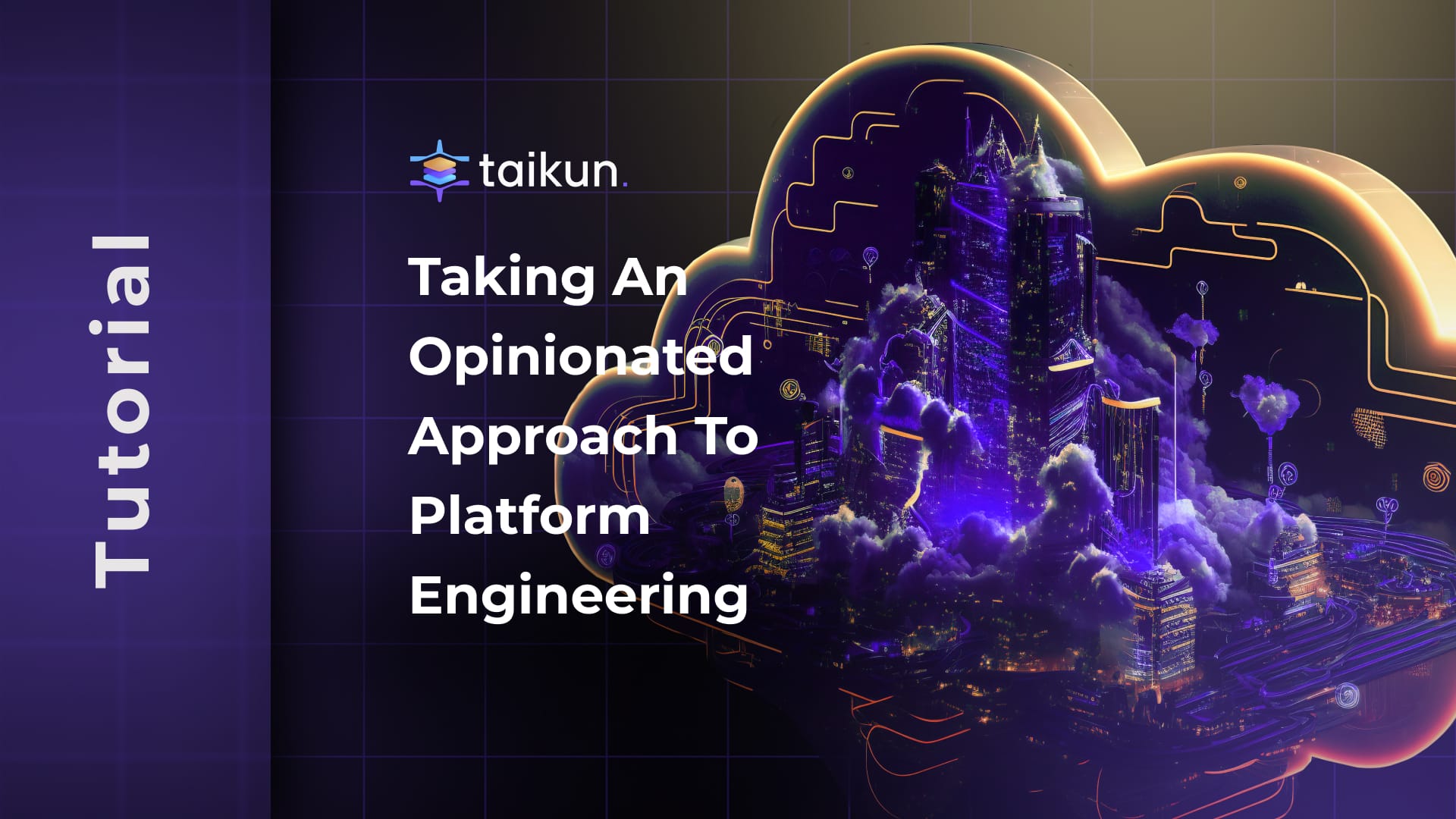Taking an opinionated approach to platform engineering

In today's cloud-native landscape, the challenge isn't just about deploying applications—it's about creating sustainable, scalable, and efficient platforms that empower development teams while maintaining operational excellence.
Platform Engineering: Scaling Through Automation with Taikun CloudWorks
The Evolution of Platform Engineering
Platform engineering has emerged as a critical discipline focused on tooling, workflows, and processes that enable self-service capabilities for software development teams. The goal is simple: reduce cognitive load on developers while maintaining high standards for security, compliance, and operational efficiency.
Core Pillars of Modern Platform Engineering
1. Internal Developer Platforms (IDP)
IDPs serve as the foundation for developer self-service. They abstract away infrastructure complexity and provide:
- Standardized workflows
- Self-service capabilities
- Automated governance
- Clear separation of concerns
2. Infrastructure as Code (IaC)
IaC brings repeatability and version control to infrastructure management:
resource "taikun_project" "platform" {
name = "platform-project"
cloud_credential_id = taikun_cloud_credential_openstack.credentials.id
server_bastion {
name = "bastion"
disk_size = 30
flavor = local.flavors_small[0]
}
# Additional configuration...
}
3. GitOps Workflows

Version-controlled, declarative infrastructure enables:
- Audit trails
- Collaboration
- Automated deployments
- Configuration drift detection
Where Taikun CloudWorks Fits In
Taikun CloudWorks bridges the gap between platform engineering principles and practical implementation through several key features:
1. Template-Driven Infrastructure
resource "taikun_catalog" "platform_catalog" {
name = "platform-catalog"
description = "Standard platform components"
projects = [taikun_project.platform.id]
application {
name = "monitoring-stack"
repository = "taikun-managed-apps"
}
}
2. Automated Workflows

Taikun CloudWorks enables automated workflows through:
- Policy-driven deployments
- Standardized application catalogs
- Integration with existing CI/CD pipelines
3. Multi-Cloud Management
resource "taikun_cloud_credential_openstack" "credentials" {
name = "cloud-credentials"
user = var.cloud_user
password = var.cloud_password
url = var.cloud_url
domain = var.cloud_domain
project_name = var.project_name
public_network_name = var.network_name
region = var.region
}
The Handoff: IDP to Taikun CloudWorks
The intersection between Internal Developer Platforms and CloudWorks occurs at several important points:
-
Service Catalog Integration
- IDP defines service standards
- CloudWorks implements and enforces them
- Automated validation and deployment
-
Policy Enforcement
resource "taikun_project" "compliant_project" { name = "compliant-platform" cloud_credential_id = taikun_cloud_credential_openstack.credentials.id access_profile_id = taikun_access_profile.restricted.id policy_profile_id = taikun_policy_profile.compliance.id } -
Resource Management
- IDP defines resource boundaries
- CloudWorks enforces quotas and limits
- Automated scaling and optimization

Scaling Through Automation
1. Reusable Components
Create standardized building blocks:
module "platform_base" {
source = "./modules/platform-base"
project_name = "platform-${var.environment}"
credentials_id = taikun_cloud_credential_openstack.credentials.id
base_flavor = local.flavors_small[0]
}
2. Workflow Templates
Implement repeatable patterns:
resource "taikun_app_instance" "standard_stack" {
name = "standard-stack"
namespace = "platform"
project_id = taikun_project.platform.id
catalog_app_id = local.standard_stack_id
values = {
"monitoring.enabled" = true
"logging.retention" = "30d"
"backup.schedule" = "0 0 * * *"
}
}
3. Automated Governance
Enforce standards automatically:
resource "taikun_policy_profile" "platform_standard" {
name = "platform-policy"
lock_management = true
alerting_enabled = true
backup_enabled = true
monitoring_enabled = true
}

Best Practices for Implementation
-
Start Small, Scale Gradually
- Begin with core services
- Validate patterns before scaling
- Iterate based on feedback
-
Automate Thoughtfully
- Focus on high-impact workflows
- Build in observability
- Maintain escape hatches
-
Enable Self-Service
- Clear documentation
- Automated validation
- Quick feedback loops
Measuring Success
Track platform engineering effectiveness through:
- Developer velocity
- Infrastructure utilization
- Deployment frequency
- Mean time to recovery (MTTR)
- Policy compliance rates
Looking Forward
The future of platform engineering lies in:
- Enhanced automation capabilities
- Improved developer experiences
- Stronger security integration
- More sophisticated policy enforcement
Platform engineering with Taikun CloudWorks provides the foundation for scaling development operations while maintaining control and efficiency. By focusing on automation, templates, and repeatable workflows, organizations can build platforms that truly enable their development teams while ensuring operational excellence.
Remember: The goal isn't just to automate—it's to create a platform that makes the right way the easy way.
Taikun CloudWorks is a one-stop solution for your Kubernetes workloads. Try Taikun CloudWorks today. Book your free demo today, and let our team simplify, enhance, and streamline your infrastructure management.

